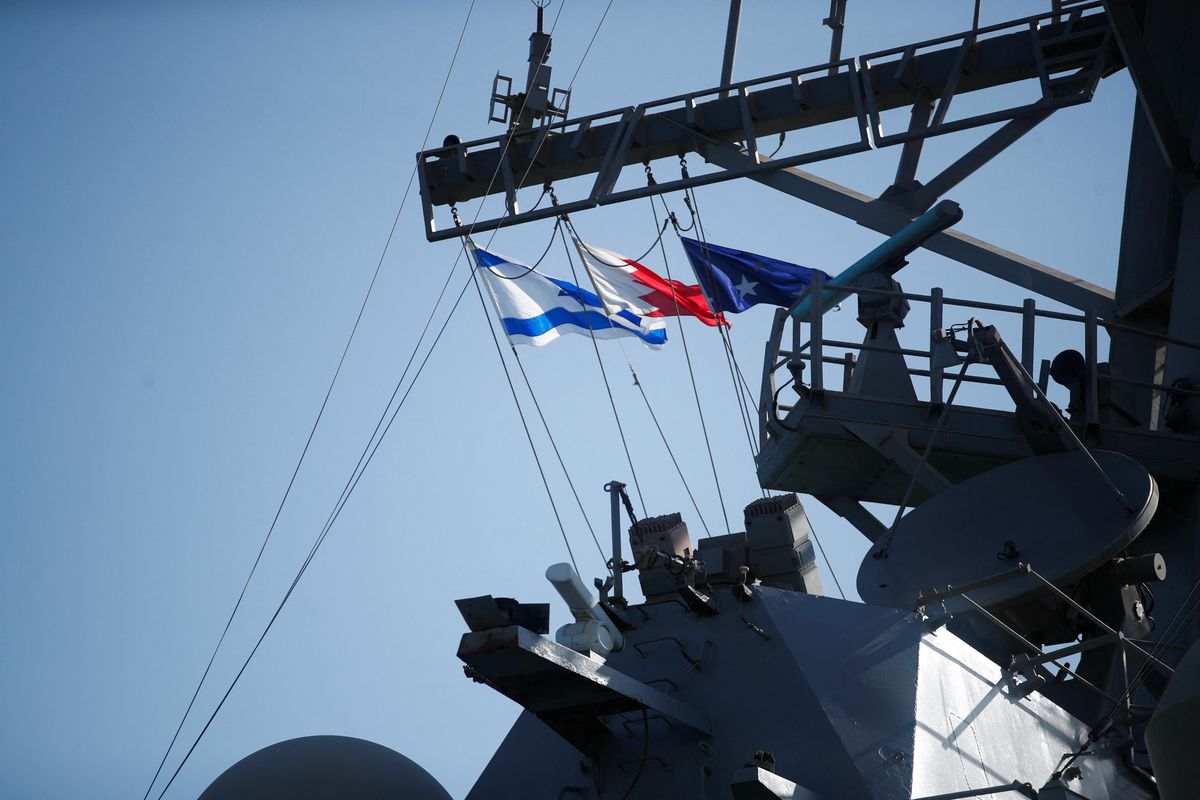As the world waits to see whether Russia will invade Ukraine, a different set of military tensions is steadily rising in the Middle East. This week, for the first time ever, naval vessels from Israel and Saudi Arabia operated together as part of a 60-nation, US-led training exercise.
This remarkable political and military milestone suggests that both countries, many of their Arab neighbors, and the US Navy are now actively preparing together for a moment when tensions with Iran, their common enemy, could spill over into open conflict.
This show of well-coordinated strength comes at a time when Iran-backed Houthi rebels in Yemen have again expanded that country’s civil war by firing missiles at targets inside the United Arab Emirates in recent weeks. This happened during a visit by Israeli President Isaac Herzog to the UAE, activating defenses at a base that houses US soldiers.
The backdrop for all this posturing is the international bargaining over Iran’s nuclear program, which has reached a critical period. After lengthy delays and a month of talks, negotiators from Iran, the US, Russia, China, France, Britain, and Germany returned home on January 28 to brief their governments on progress made and unresolved sticking points.
An agreement by all sides to recommit to the 2015 nuclear deal would certainly cool the region’s rising security temperature, but there are two main obstacles.
First, the US can’t guarantee that a future US president won’t decide to abandon the deal as former President Donald Trump did in May 2018. Why, Iran asks, should we commit to a plan the Americans won’t promise to honor?
Second, Iran’s leaders may be confident that their economy can withstand the pressure of continued, even intensified, US sanctions. Oil prices, now at their highest point in years, are bringing new revenue to Tehran’s coffers. Russia and China have agreed to new trade deals with Iran, and its nuclear program is making rapid progress. Moreover, Iran has already endured so much economic pain that its leaders may calculate it can tolerate this misery indefinitely.
The US and Iran might yet reach an agreement, particularly since the deal’s terms will expire in 2026 anyway, and neither side would have to remain committed to the terms for long. Getting to “yes” could postpone a crisis that no one at the table wants.
But if negotiations fall apart, then it will matter much more that Israel, Gulf states led by Saudi Arabia and the UAE, and the US are all working together to up the military pressure on Iran. No one wants a war that could quickly destabilize the entire Middle East, but Israel and the Saudis will not sit on their hands as Iran accumulates enough highly enriched uranium for several bombs, sets more advanced centrifuges spinning, and advances closer than ever before to unveiling a nuclear weapon.
In short, if there’s no deal in the coming weeks, all sides will prepare for real trouble, which may begin with increasingly sophisticated cyber-attacks and sabotage strikes inside Iran. The risk of spillover into broader conflict can’t be ignored.
Increased cooperation between Israel and the Gulf states could also come with one big silver lining for peace in the region. First, the normalization of relations between the Israeli and Arab governments is creating major trade and investment opportunities that boost growth across the entire region. Israel’s government opened formal relations with the UAE and Bahrain in 2020.
Second, at a time when the US is less willing to accept the risks that come with managing conflict in the Middle East, alignment between the Israelis, Saudis, and UAE – with US backing – could still persuade Iran to avoid fights it can’t win.
Israel conducted naval exercises with the UAE and Bahrain in November 2021, and Israeli Defense Minister Benny Gantz signed a defense cooperation agreement with Bahrain this week. And these historic naval exercises will take cooperation a step further.
For now, however, it’s the fate of the nuclear deal that will determine how high the mercury rises in the Middle East this year.






